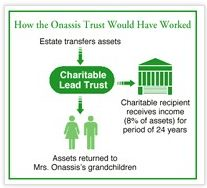In IRS Notice 98-20, the U. S. Treasury has provided guidelines for the treatment of long-term capital gain (LTCG) income contained in distributions from qualified charitable remainder trusts (CRTs) under the “four-tier” distribution system provided under IRS Section 664(b).
Continuing what has been described by some as the “worst in, first out” approach, the IRS provides that all gain that would be taxed at 28% will be deemed to be distributed first, followed by any amounts that would be taxed at 25%, and finally any gain that would be taxed at the 20% tax rate.
In a sense, therefore, the Notice announces that the four-tier system has, for practical purposes, been expanded to a six-tier approach, with the addition of the two new “subtiers” of capital gain income.
In a surprise move that may be beneficial to some CRT beneficiaries, and will be welcome news to trust administrators, all pre-1997 LTCG will be treated as 20% gain, regardless of whether it would have been subject to a higher tax rate at the time the gain was realized.
A Closer Look at the Onassis Lead Trust
When Jacqueline Kennedy Onassis died in 1994, a charitable lead trust known as The C & J Foundation was established in her will. The lead trust, which was scheduled to last 24 years, was named for her children, Caroline and John, using the generic term “foundation.”
Although her children exercised their option not to fund the trust, each year the lead trust would have made gifts totaling a sum equal to 8% of the value of the assets used to fund the trust initially. At the end of 24 years, the remaining assets in the trust would have been distributed to Mrs. Onassis’s grandchildren.

Mrs. Onassis’s estate would have benefited greatly from a charitable estate tax deduction. Assuming quarterly payments from an 8% lead trust for 24 years and the 6.4% discount rate which was applicable to her estate, the estate tax deduction would have been 99.1% of any amounts contributed to the trust.

